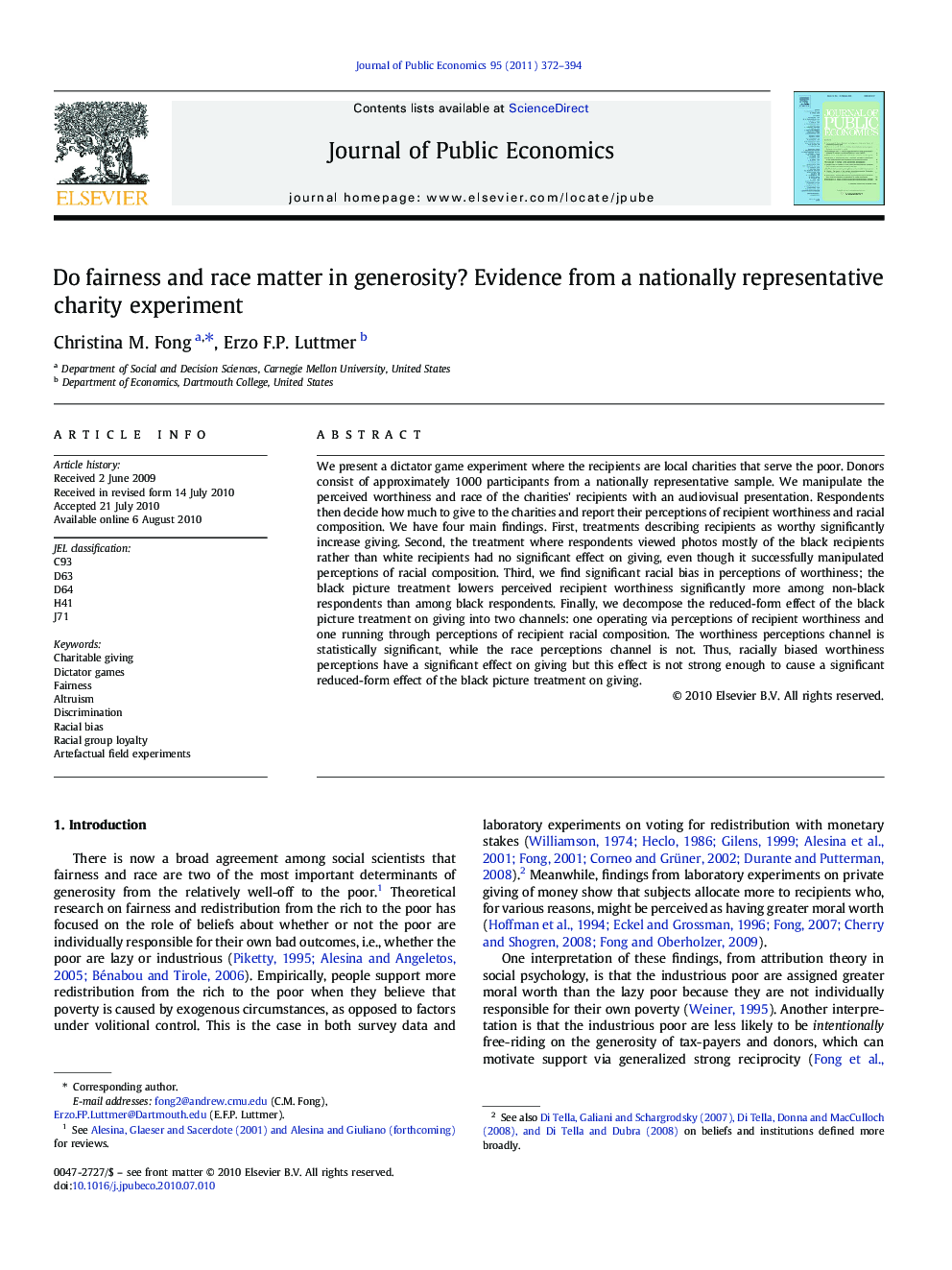| Article ID | Journal | Published Year | Pages | File Type |
|---|---|---|---|---|
| 970024 | Journal of Public Economics | 2011 | 23 Pages |
We present a dictator game experiment where the recipients are local charities that serve the poor. Donors consist of approximately 1000 participants from a nationally representative sample. We manipulate the perceived worthiness and race of the charities' recipients with an audiovisual presentation. Respondents then decide how much to give to the charities and report their perceptions of recipient worthiness and racial composition. We have four main findings. First, treatments describing recipients as worthy significantly increase giving. Second, the treatment where respondents viewed photos mostly of the black recipients rather than white recipients had no significant effect on giving, even though it successfully manipulated perceptions of racial composition. Third, we find significant racial bias in perceptions of worthiness; the black picture treatment lowers perceived recipient worthiness significantly more among non-black respondents than among black respondents. Finally, we decompose the reduced-form effect of the black picture treatment on giving into two channels: one operating via perceptions of recipient worthiness and one running through perceptions of recipient racial composition. The worthiness perceptions channel is statistically significant, while the race perceptions channel is not. Thus, racially biased worthiness perceptions have a significant effect on giving but this effect is not strong enough to cause a significant reduced-form effect of the black picture treatment on giving.
